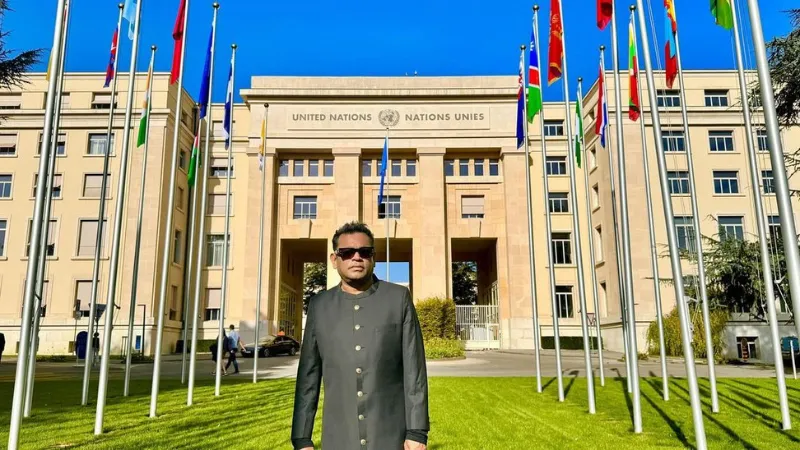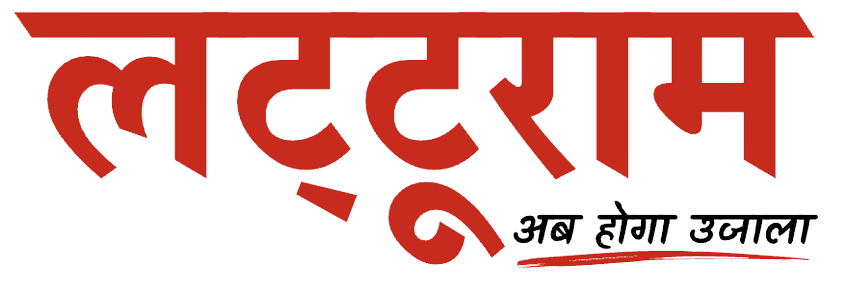
Born A. S. Dileep Kumar on January 6, 1967, Allah Rakha Rahman (pronunciation ⓧ) is an Indian music composer, record producer, singer, songwriter, musician, multi-instrumentalist, and philanthropist. A. R. Rahman is well-known for his contributions to Indian cinema, primarily in the Tamil and Hindi film genres, with sporadic excursions into other international cinema.
Read Also – Actor Ashutosh Rana Biography, Wiki
A. R. Rahman has won fifteen Filmfare Awards, seventeen Filmfare Awards South, two Academy Awards, two Grammy Awards, a BAFTA Award, a Golden Globe Award, and six National Film Awards. The third-highest civilian honour in India, the Padma Bhushan, was given to him by the government in 2010.
The Tamil film Roja marked the beginning of Rahman’s film scoring career, which he started with his own studio, Panchathan Record Inn, in the early 1990s. Subsequently, he composed multiple songs for Tamil films, such as the politically charged Bombay directed by Mani Ratnam, the urban Kadhalan, Thiruda Thiruda, and Gentleman, the first film directed by S. Shankar. Rahman won the BMI Award for Best Score for his work on the comedy Couples Retreat (2009), his debut Hollywood picture. At the 81st Academy Awards, he won Best Original Score and Best Original Song for his work on Slumdog Millionaire (2008). At the 2010 Grammy Awards, he also took home the Best Song Written for Visual Media and Best Compilation Soundtrack Album awards. Both “Mozart of Madras” and “Isai Puyal” (musical storm) are nicknames given to him.
Rahman has also developed into a philanthropist and humanitarian, contributing to and raising funds for numerous charities and causes. He received recognition from Stanford University in 2006 for his services to world music. The Rotary Club of Madras awarded him a Lifetime Achievement Award in 2008. A. R. Rahman was listed as one of the 100 most important people in the world by Time in 2009. He brought 7.1 surround sound to South Indian cinema in 2013. He was given an honorary doctorate by Berklee College of Music in 2014. His honorary doctorate from Aligarh Muslim University is another accolade. He debuted as a writer and director in the 2017 picture Le Musk.
A. R. Rahman Childhood
Born on January 6, 1967, in Madras, Tamil Nadu, A. S. Dileep Kumar became Allah Rakha Rahman . His father, R. K. Shekhar, was a conductor and film-score composer for Malayalam and Tamil films. He came from a Mudaliar family. At age four, Rahman started taking piano lessons. He played the keyboard to help his father in the studio.
Rahman’s family made ends meet by renting out his father’s musical instruments when he passed away when he was nine years old. Raised by his mother Kareema (born Kashturi), Rahman attended Padma Seshadri Bala Bhavan but was frequently absent from school and did poorly on tests since he had to work to support his family. Rahman claimed in a 2012 interview that his mother had been called and instructed to take him to the streets of Kodambakkam where he would beg, with the intention of keeping him out of school.
Rahman spent a year attending MCN, a different school. After that, he joined Madras Christian College Higher Secondary School, where he was accepted based on his musical ability and joined a band with his high school peers. But he later left school to pursue a career as a full-time musician after talking with his mother.
In addition to founding the rock group Nemesis Avenue in Chennai, Rahman played keyboards and arranged music for several bands, including Roots (which included childhood friend and percussionist Sivamani, John Anthony, Suresh Peters, JoJo, and Raja). A. R. Rahman was proficient at the piano, synthesiser, guitar, harmonium, and keyboard. The synthesiser piqued his curiosity the most, since it was considered the “perfect fusion of technology and music.”
Rahman studied under Master Dhanraj for his early musical training and joined Malayalam composer M. K. Arjunan’s orchestra at the age of 11—a close friend of his father. Vijaya Bhaskar, M. S. Viswanathan, Ilaiyaraaja, Ramesh Naidu, Vijay Anand, Hamsalekha, and Raj-Koti were among the composers he soon started working with. He also accompanied Zakir Hussain, Kunnakudi Vaidyanathan, and L. Shankar on their global tours, and he was awarded a scholarship from Trinity College London to the Trinity College of Music. Rahman had helped numerous music directors in his early career with piano and synthesiser work. A noteworthy piece of work is the 1989 Malayalam film Ramji Rao Speaking, in which Rahman and Sivamani composed the song “Kalikalam” for the film’s music director, S. Balakrishnan.
A. R. Rahman Islamization
Rahman attended the Madras School of Music and received a diploma in Western classical music. In 1984, while his younger sister was in critical condition, Rahman was first exposed to Qadiri tariqa. His mother was a devout Hindu woman. In 1989, at the age of 23, he and other family members converted to Islam, and he adopted the name Allah Rakha Rahman (A. R. Rahman).
A. R. Rahman Professional Soundtracks
Rahman first wrote music for jingles for commercials and Indian television networks, as well as scores for various documentaries. Rahman, who was still going by Dileep at the time, wrote jingles for a line of watches that Allwyn debuted in 1987. Additionally, he composed the tunes for a few commercials that went on to become huge hits, such as the well-known Titan Watches jingle, which used the theme from Mozart’s Symphony No. 25.
A. R. Rahman Influence And Style Of Music
Rahman is renowned for his cinema songs that combine aspects of several genres, such as Carnatic music, Western and Hindustani classical music, and the Qawwali style of Nusrat Fateh Ali Khan. He does this by layering instruments from various musical idioms in an improvisational approach.38 Rahman shared monaural recordings in the 1980s with K. V. Mahadevan and Vishwanathan-Ramamoorthy, his musical forebears. He has also contributed to hundreds of films as a pianist with Ilaiyaraaja’s group. His approach evolved over time as he experimented with fusing new electronic sounds and technologies with conventional instruments.38
Read Also – Actress Jyothi Rai Biography, Wiki
Rahman’s love of experimenting is the source of both his musical interests and attitude. His songs combine Indian pop music with a distinctive timbre, form, and instrumentation through an auteuristic use of counterpoint, orchestration, and the human voice. Rahman’s music appeals to a wide range of social classes and cultural backgrounds in Indian society because of its syncretic sound and inclusive lyrics.
Time included his debut soundtrack, Roja, in their list of the “10 Best Soundtracks” of all time in 2005. According to film critic Richard Corliss, Rahman’s initial global popularity can be due to the South Asian diaspora. The composer’s “astonishing debut work parades Rahman’s gift for alchemizing outside influences until they are totally Tamil, totally Rahman” . Rahman is regarded as “one of the world’s great living composers in any medium” by music producer Ron Fair.
“I had come to the music of A. R. Rahman through the poignant and eerie score of Bombay and the wit and celebration of Lagaan,” director Baz Luhrmann stated. But the more AR’s music I heard, the more I was astounded by its tremendous breadth of styles, which ranged from joyful pop to West End musicals, swinging brass bands to triumphant anthems. I’m most inspired by A. R. Rahman’s music since it always has a strong feeling of humanity and energy, regardless of the style.
Rahman gave South Indian cinema access to 7.1 surround sound. Rahman is among the top-selling musicians in India, having sold an estimated 150 million recordings globally Rahman and Will.i.am, the former member of Black Eyed Peas, stated on May 21, 2014, that they will be recreating the early hit song “Urvashi Urvashi.” ‘Birthday’ is the track.
A. R. Rahman Individual Life
Rahman is married to Saira Banu, the actor Rashin Rahman’s sister-in-law. Together, they have three children: Khatija, Raheema, and Ameen. Rahman with his wife Saira Banu at the 2010 Enthiran album release in Kuala Lumpur. Khatija sang “Pudhiya Manidha” from Enthiran, and Ameen sang “NaNa” from Couples Retreat. Rahman’s older sister A. R. Reihana is the mother of composer G. V. Prakash Kumar. Rahman’s music conservatorium in Chennai is run by Fathima, his younger sister. Ishrath, the youngest, has a recording studio. Rahman, the actor, is co-brother of A.R.
Rahman was born into a Hindu family and converted to Islam in his 20s. His mother was a practicing Hindu , and Sufism eventually affected her and his family after his father passed away too soon. His family went through a terrible period after that. Rahman honoured his mother during the 81st Academy Awards ceremony, saying, “There is a Hindi dialogue, mere pass ma hai, which means ‘even if I have nothing, I have my mother here.'” Before he spoke, he spoke the Tamil phrase “All praise to God,” which is a translation of “Ellā pugaḻum iṟaivaṉukkē” from the Quran. Rahman faced criticism for his liberal persona in February 2020 when Bangladeshi writer Taslima Nasreen brought up the subject of his daughter donning a burka.Reference 161
A. R. Rahman Charity
Rahman is active in several humanitarian endeavours. He was named the Stop TB Partnership’s worldwide ambassador in 2004, a WHO initiative. Together with Yusuf Islam, Rahman has backed Save the Children India. The song “Indian Ocean” features Magne Furuholmen, the keyboardist for a-ha, and Neil Primrose, the drummer for Travis. The song’s proceeds were donated to Banda Aceh orphans who were impacted by the 2004 Indian Ocean Tsunami. He co-produced Don Asian’s track “We Can Make It Better” alongside Mukhtar Sahota.[Inadequate confirmation] Rahman established the KM Music Conservatory in 2008 as an audio-visual learning centre to teach budding musicians sound engineering, music technology, vocal technique, and instruments. Several levels of classes are available at the conservatory, which is close to his studio in Kodambakkam, Chennai, and has a symphony orchestra and well-known performers on staff. L. Subramaniam, a violinist, serves on its advisory board.
Numerous Rahman’s studio protégés have composed music for motion pictures. He established Sunshine Orchestra in 2009 with the goal of establishing India’s first symphony orchestra, where youngsters from underprivileged backgrounds receive free music instruction at the KM Music Conservatory. In order to help Chennai’s impoverished women, he wrote the theme music for a short film for The Banyan in 2006.
Inspired by the Free Hugs Campaign, Rahman and renowned drummer Sivamani wrote the song “Jiya Se Jiya” in 2008, which was then supported by a music video shot in several Indian cities for charitable purposes. I wanted to make this idea more interactive, even though it began as a city symphony project where we looked at collecting the sounds of the city.
I want it to incite a completely different way of thinking in kids in especially because this isn’t about movie music or stars; instead, I want them to design and create their own future established the One Heart Foundation in 2017 to help those in the music industry. Rahman revealed Ta Futures, a cooperative cultural initiative that would curate and showcase Tamil Nadu’s musical heritage.
Rahman on the Ta Futures project’s announcement in Chennai At the annual Pratham gala in New York in 2019, Rahman gave a Sufi Benefit Concert. Pratham is one of the biggest non-governmental organisations in India that works to provide quality education to poor children in India. Rahman and his group gave a pro-bono performance of the entire dinner concert. Following the event, he praised the guests for their generosity and respect on Twitter, writing that his “long time dream of performing #Sufimusic for human causes came true”.
About Latturam – latturam.com is a platform to know some facts about nature, history, health, environment and our lifestyle.
Read Also – Actor Praneet Bhat Biography, Wiki



Comments